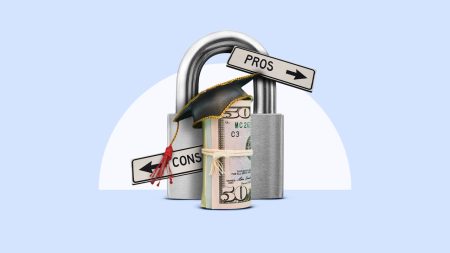Images by Getty Images; Illustration by Bankrate
Key takeaways
- Rewards credit cards can help you earn points, miles or cash back on your everyday purchases.
- There’s a wide variety of rewards cards out there, so you’ll want to choose a card that fits your spending habits.
- If you’re still building credit or paying off credit card debt, you might consider alternative cards that don’t offer rewards but are easier to qualify for or allow balance transfers.
Rewards credit cards are popular because they let you earn cash back or travel points on everyday purchases. When used responsibly, they can save you money on flights, hotels, dining and more. However, many people don’t know how to make the most of them — from choosing the right card to earning sign-up bonuses and redeeming rewards wisely.
These cards are usually worth it if you avoid interest and the annual fee is lower than the rewards you earn. I spoke with Rick Conyers, Assistant Vice President of Credit Card Products at Navy Federal Credit Union, for expert insights on key considerations.
Advantages of rewards cards
The value of a rewards card depends on whether you use the card responsibly — and that includes taking advantage of all the rewards you earn. Here are a few factors that make rewards cards worth it:
Pros of rewards credit cards
- Rewards on everyday purchases: Naturally, the biggest benefit of using a rewards card comes from the rewards you earn. The best travel rewards cards earn points or miles on every purchase, while the best cash back cards earn cash back on everyday spending.
- Welcome bonus: Rewards cards that offer a sign-up bonus, also called a welcome bonus, let you earn rewards after becoming a new cardholder and spending a certain amount in a set timeframe.
- Travel redemption options: If you jet-set often, a travel rewards card lets you put points or miles toward flights and hotels. They can also come with perks like elite status, travel insurance and statement credits.
- Cash back redemption options: People who love to spend on going out or simply use their card to pay for everyday expenses might benefit from cash back rewards. Flat-rate cash back cards earn the same amount on every purchase, while bonus category cash back cards earn more points in certain purchase categories. Deciding between a flat-rate card versus a bonus category card will depend on your spending habits.
Conyers says your lifestyle plays a big role in choosing a rewards card: “I encourage everyone to look at where they typically spend and make sure what they’re choosing aligns with their lifestyle.”
His family of five doesn’t travel often, but they like to go on family outings. That’s why Conyers uses his cash back card for their regular spending. In the summertime, he and his kids use cash back to go to the movies.
“We splurge and use cash back to cover things we don’t do as frequently throughout the year,” he explains.
Bankrate’s take
There are many rewards programs to choose from. After examining your spending habits and how willing you are to strategize for rewards, you can pick the right card for you.
Disadvantages of rewards cards
Rewards cards, like any credit cards, also come with potential risks worth thinking about before you apply, such as:
Cons of rewards credit cards
- Overspending to earn rewards: It can be tempting to spend more than you can afford to max out your rewards or earn a welcome bonus. In fact, 7 in 10 Americans (72 percent) are chasing credit card rewards while in debt, according to Bankrate’s Chasing Rewards While in Credit Card Debt Survey.
- Untapped value: If you don’t actually redeem your rewards, you’re leaving money on the table. And some redemption options are less valuable than others, so it can take effort to maximize a rewards card’s value.
- High interest rates: Credit card interest rates are high, and rewards cards tend to carry some of the highest rates. If you don’t pay off your balance in full each month, the interest you accrue may outweigh the value of your rewards. “Consider the cost of holding debt on a rewards card,” Conyer advises.
- High annual fee: Many rewards cards charge an annual fee. When considering a card with a high annual fee, ask yourself if you can use the rewards and benefits that come with it. If not, “that annual fee will lose some of its luster,” Conyers says.
- High credit score requirements: Rewards cards may also require you to have good or excellent credit. Keep in mind that card issuers pull a hard inquiry on your credit when you apply for a new card, which dings your credit score. So, it’s good to know whether you’re likely to qualify before applying — especially if you plan to apply for other loans, like a mortgage or car loan, in the near future.
“There are always a few signs you want to look for so you don’t have buyer’s remorse when it comes to a rewards card,” Conyers says. “I encourage someone to think of the long-term plan they have for the card they’re looking at.”
Keep in mind
It’s worth your while to check the interest rates, annual fees and credit score requirements for potential new rewards cards before you apply.
Should you get a rewards credit card?
With so many rewards programs out there, it can be overwhelming to consider whether a rewards credit card is right for you and which type you should apply for. Here’s when a rewards card might or might not be worth it:
When getting a rewards card is worth it
Without a good rewards card, you could be missing out, especially if you travel often or spend heavily on groceries, gas or retail.
For example, applying for one of the best credit cards for groceries could earn you cash back on eligible supermarket purchases. Using one of the best credit cards for dining out means you could earn cash back on restaurants and takeout. And if you’re planning a vacation in the near future, you should consider a travel rewards card.
I use my American Express® Gold Card for almost all my grocery purchases and when I dine out, since it earns 4X points back in these categories. The annual fee is on the higher side, but I offset it by taking advantage of the statement credit perks this card offers.
— Madison Hoehn, Bankrate credit cards editor
When getting a rewards card isn’t worth it
If you have limited credit or a low score, focus on building credit with a starter card first, as it might be difficult to qualify for a rewards card. And if you’re already in credit card debt, it’s smarter to pay down balances first — as interest charges will likely outweigh any rewards you’d earn.
Alternatives to rewards cards
While many people want to earn rewards with their credit card, it’s worth noting that there are other types of cards available. The following cards might be a better fit than a rewards credit card, depending on your creditworthiness and financial situation:
The bottom line
Are credit card rewards worth it? Generally, yes — if used responsibly, as rewards credit cards offer more benefits than non-rewards cards. But if you’re not maximizing them, you’re missing out on savings for travel, shopping, and more. To find the right fit, try Bankrate’s CardMatch™ tool, which matches cards to your credit profile and goals.
Why we ask for feedback
Your feedback helps us improve our content and services. It takes less than a minute to
complete.
Your responses are anonymous and will only be used for improving our website.
Help us improve our content
Read the full article here









